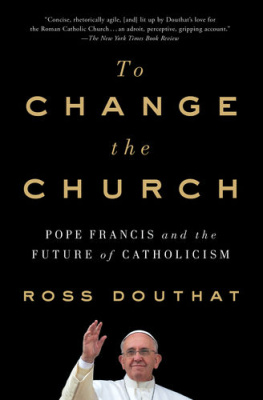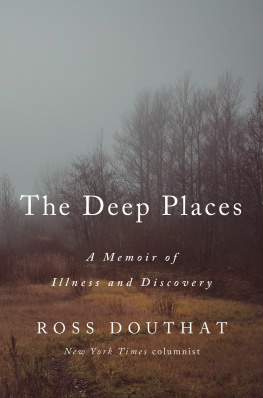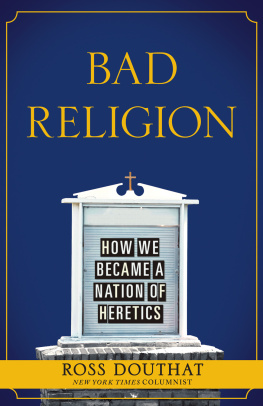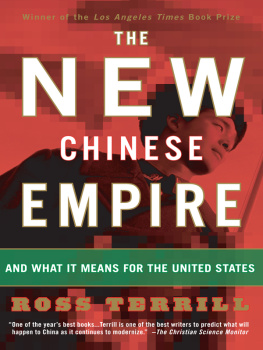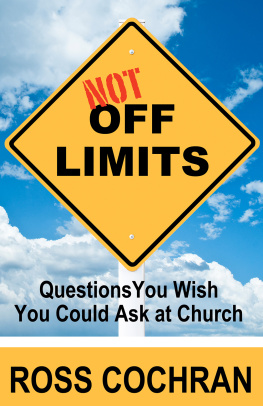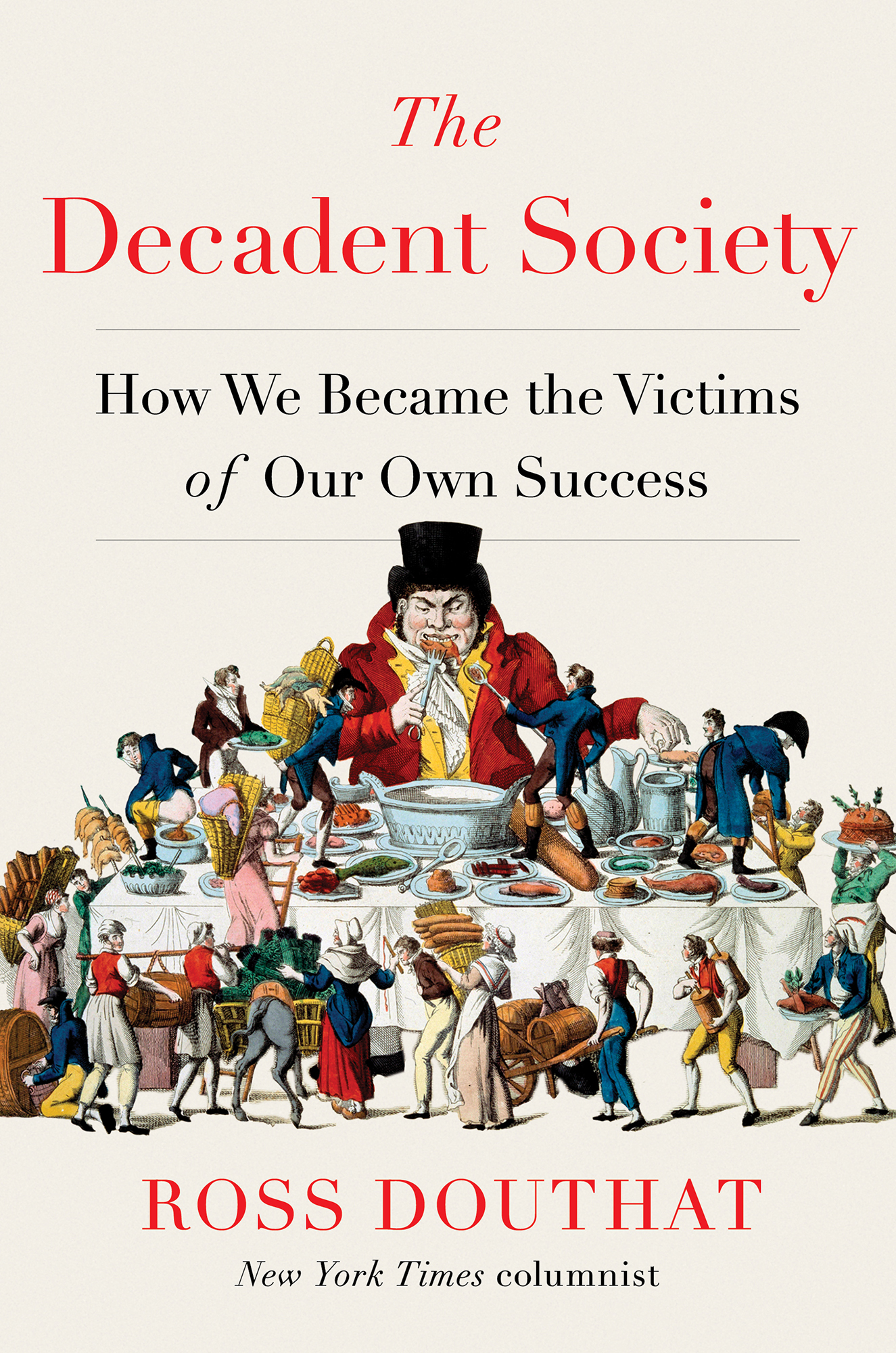Contents
Guide
ALSO BY ROSS DOUTHAT
To Change the Church:
Pope Francis and the Future of Catholicism
Bad Religion:
How We Became a Nation of Heretics
Grand New Party:
How Republicans Can Win the Working Class and Save the American Dream
(with Reihan Salam)
Privilege:
Harvard and the Education of the Ruling Class
A VID R EADER P RESS
An Imprint of Simon & Schuster, Inc.
1230 Avenue of the Americas
New York, NY 10020
www.SimonandSchuster.com
Copyright 2020 by Ross Douthat
All rights reserved, including the right to reproduce this book or portions thereof in any form whatsoever. For information, address Avid Reader Press Subsidiary Rights Department, 1230 Avenue of the Americas, New York, NY 10020.
First Avid Reader Press hardcover edition February 2020
AVID READER PRESS and colophon are trademarks of Simon & Schuster, Inc.
For information about special discounts for bulk purchases, please contact Simon & Schuster Special Sales at 1-866-506-1949 or .
The Simon & Schuster Speakers Bureau can bring authors to your live event. For more information or to book an event, contact the Simon & Schuster Speakers Bureau at 1-866-248-3049 or visit our website at www.simonspeakers.com.
Jacket design by Alison Forner
Jacket artwork: Gargantua character of the novels by Franois Rabelais (14941553), French Writer. Gargantua Has a Large Canopy and Has All Kinds Of Dishes. Prints of The 19th Century Paris, Muse Carnavalet, Photo Photo Josse / Bridgeman Images
Author photograph Josh Haner/New York Times
Library of Congress Cataloging-in-Publication Data has been applied for.
ISBN 978-1-4767-8524-0
ISBN 978-1-4767-8526-4 (ebook)
For Gwendolyn, Eleanor, Nicholas and Plum
The crisis consists precisely in the fact that the old is dying and the new cannot be born; in this interregnum a great variety of morbid symptoms appear.
Antonio Gramsci
pity this busy monster, manunkind, not. Progress is a comfortable disease
e. e. cummings
INTRODUCTION The Closing of the Frontier
The peak of human accomplishment and daring, the greatest single triumph of modern science and government and industry, the most extraordinary endeavor of the American age in modern history, occurred in late July in the year 1969, when a trio of human beings were catapulted up from the earths surface, where their fragile, sinful species had spent all its long millennia of conscious history, to stand and walk and leap upon the moon.
Four assassinations later, wrote Norman Mailer of the march from JFKs lunar promise to its Nixon-era fulfillment, a war in Vietnam later; a burning of Black ghettos later; hippies, drugs and many student uprisings later; one Democratic Convention in Chicago seven years later; one New York school strike later; one sexual revolution later; yes, eight years of a dramatic, near-catastrophic, outright spooky decade later, we were ready to make the moon. We were readyas though the leap into space were linked, somehow, to the civil rights revolution, the baby boomers coming into their own, the transformation in music and manners and mores, and the hopes of utopia percolating in Paris, Woodstock, San Francisco.
Mailers was a mystical take on history, but one well suited to its moment. For the society that made it happen, the Apollo landing was both a counterpoint to the social chaos of the 1960s and the culmination of the decades revolutionary promise. It proved that the efficiency and techno-optimism of Eisenhower-era America could persist through the upheavals of the counterculture, and it represented a kind of mystical, dizzy, Age of Aquarius moment in its own right. As much as anything that happened here on earth, the fire on the moon helped make the summer of 69 seem like a beginning, not a peakan opening into a new era, in which the frontier would no longer be closed, the map no longer filled in, and human beings would expand their explorations, their empires, their arguments and imaginations and ambitions into the very stars.
This was the space age, which lasted for about thirty years: from Sputnik in 1957 to the space shuttle Challenger explosion in 1986. And we who live in its aftermath have forgotten just how confidently it was expected to continue. In The Heavens and the Earth: A Political History of the Space Age, his magisterial narrative of the period, Walter McDougall runs through the expert predictions of the 1960s and 1970s: that soon reusable spacecrafts would be constantly ascending and descending like angels on Jacobs ladder into space; that by the year 2000, both superpowers would have lunar colonies; that human missions to Mars would begin within a decade of the moon landing; that space would soon become the site of revolutions in energy production, weather control, and more. Likewise with Apollo-era pop culture: 2001: A Space Odyssey promised a manned mission to Jupiter in its eponymous year, while the timeline of the future on Star Trek assumed that space exploration and colonization would follow as naturally from the Apollo program as sailors and settlers had followed the course discovered by Columbus.
This dream did not quite die with Challenger, but it had lost adherents across the disappointingly earthbound seventies, and from the Reagan era onward, it became a fond and somewhat fantastical hope, invoked as a flourish by presidents seeking to inspire and pursued by the sort of eccentric billionaires who also invested in cryonics. As it became clear that we would not master the vastnesses of space as easily as explorers crossing the Atlantic, the publics attention waned, political support diminished, and science fiction lost its gee-whiz edge and turned dystopian. The movies especially began to treat the infinite spaces differentlyas a zone of terrors where no one hears you scream (Alien and its imitators), a source of sinister invasions and a home of malignant demigods (the UFO craze, The X-Files), or as a purgatory to be escaped by a safe return to earth (Apollo 13, Gravity, The Martian, Ad Astra). Where Trek had confidently blended sixties liberalism with the frontier spirit of Wagon Train, its successors Star Wars and Battlestar Galactica were not even visions of the human future at all: they were dispatches from a stellar prehistory; a vision of far away or long ago.
Meanwhile, unmanned spaceflight expanded, robots reached distant worlds, astronomers discovered planets that might well be earthlikebut none of it kindled the popular imagination as the giant leap for mankind had done. For the most part, humanity had decided that whatever might be up there, it would probably remain indefinitely out of reach.
This resignation haunts our present civilization. Across human history, the most dynamic and creative societies have been almost inevitably expansionary, going outward from tribes and cities and nations to put their stamp upon a larger world. Sometimes this has meant settlement and sometimes conquest, sometimes it has meant missionary zeal, sometimes simply exploration for the sake of commerce and curiosity. In the case of the modern West, the first world civilization, it meant all of them: God and gold and glory, settler societies and far-flung imperial rule, races to the poles and to the peaks, and the sprawl of roads and railways and steamship lines and airline routes and communication networks that bound the worlds peripheries into a universal web.

